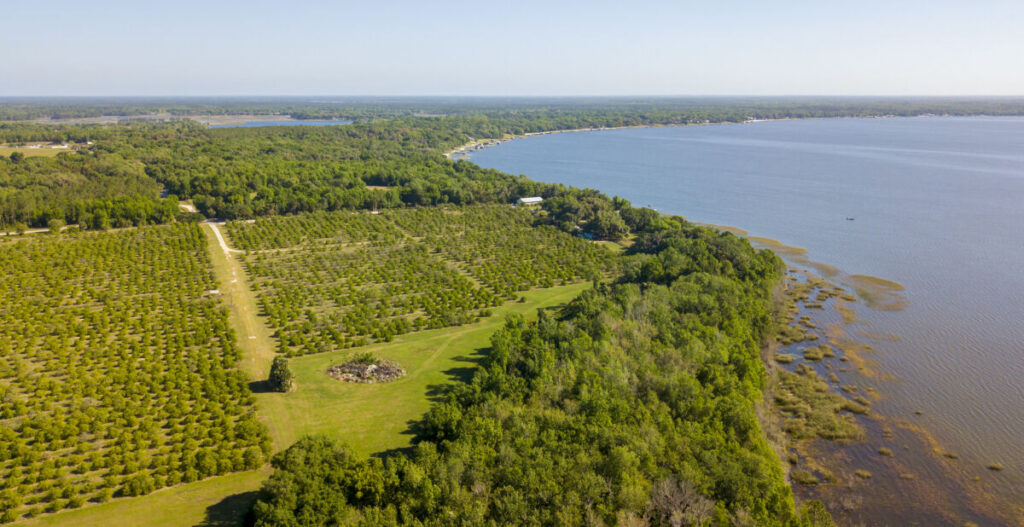Potential septic-to-sewer project for Lake Weir
Early surveying shows most residents not in favor

File photo: The Carney Island Recreation and Conservation Area on Friday, March 24, 2023, in Ocklawaha [Alan Youngblood/Special to the Ocala Gazette]
As part of the preliminary stages of a potential conversion from septic tanks to a sewer system in a part of Lake Weir, Marion County surveyed a number of residents on their feelings toward the idea—with the vast majority of respondents saying they are against it.
Of the 503 residents of North Shore Lake Weir the petition was sent to, 276 responded. Of those, 82% were against the project.
The results of the petition were presented to the Marion County Board of County Commissioners at the Nov. 7 meeting. The results are not binding and do not dictate whether the project will move forward or not. They will, however, provide the board with a general idea of the community’s sentiment.
Brian Creekbaum, a longtime enjoyer of Lake Weir, told the commissioners at the meeting that even with the potential environmental benefits of the septic-to-sewer project, the high number of negative responses is due to the hefty price tag.
In a letter sent to residents along with the survey, the county said the proposed improvements would cost from $45,000 to $50,000 per property, payable over the course of 20 years through their property tax bill.
“I think there’s some disagreement about septic tank impact,’’ Creekbaumn said, “but I believe sticker shock is the primary driver of the negative vote.’’
Creekbaum shared his connection and affinity for the lake, saying that his grandparents lived on East Lake Weir in the early 1900s. He has often visited his family’s cottage there and said he has used the Carney Island boat ramp throughout his life.
“I am here today to take the position that (the county) should take a leading role in determining these things and take the lead in any necessary implementation because a vital public asset is involved,” he said.
The county detailed the potential benefits of the project in the petition that was sent to the residents of the part of Lake Weir that the project would impact.
“The purpose of the Project is to eliminate nutrients (nitrogen and phosphorus) and potential pathogens released by septic systems into the environment surrounding Lake Weir,” according to the petition. “The goal of the project is to help improve water quality in Lake Weir and preserve the lake as an important recreational destination for residents and visitors to enjoy.”
Transitioning from septic tanks to a sewer system could have a number of benefits for the quality of water of the lake, as septic systems can “negatively impact not only our drinking water but the quality of our ecosystem and aquatic life,” according to the U.S. Environmental Protection Agency
When it comes to the proposed septic-to-sewer project and future endeavors for ensuring the lake’s longevity as a public asset, Creekbaum believes the county should utilize state funds to complete this project and regularly participate and take a stronger role in preservation.
“There needs to be a county-sanctioned assessment of Lake Weir based on the best science and a plan of action developed to address problems,” he said.
The Save Lake Weir Association is a private organization that studies the pollutant levels, water quality and wildlife of the lake. It actively works to protect, preserve and restore the lake while educating the public, according to its website.
“You should not expect a private (organization) to shoulder all the load and preserve public assets such as the lake and the park,” Creekbaum said.
Save Lake Weir collects samples from the Big Lake, Sunset Harbor and the Little Lake monthly. The organization’s studies show a 54% in nitrogen levels and a 19% decrease in water clarity since 1985.
The county has explored alternative methods of funding the project that could reduce, but not eliminate, the cost for taxpayers. The county applied on Aug. 23 for a grant through the Water Quality Improvement Program through the Florida Department of Environmental Protection, which could potentially allocate “millions of dollars” toward the project.
“This grant would significantly reduce the cost for property owners over a 20-year period. The amount of this grant would be determined on need, and we won’t know how much unless we are awarded the grant,” said Marion County spokesperson Bobbi Perez in an email.
Despite the initial negative reaction and taking into account that the quality of the lake is not a direct responsibility of the county, Perez said the county has taken the initiative to help residents with costs if the project moves forward.
“Marion County’s proactive approach aims to assist residents in this matter,’’ she wrote. “However, if the property owners decide against any future assessment, the responsibility to finance individual septic-to-sewer conversions will fall solely on the property owner.”
As for the lake’s future, Marion County residents like Creekbaum will continue to enjoy Lake Weir for years to come, with the hope that everyone will take as much interest and care in it as his family always has.
“My mother distributed (my grandfather’s) ashes on the Big Lake and mine and going in the little Lake,” Creekbaum said. “Though, hopefully, not anytime soon.”





